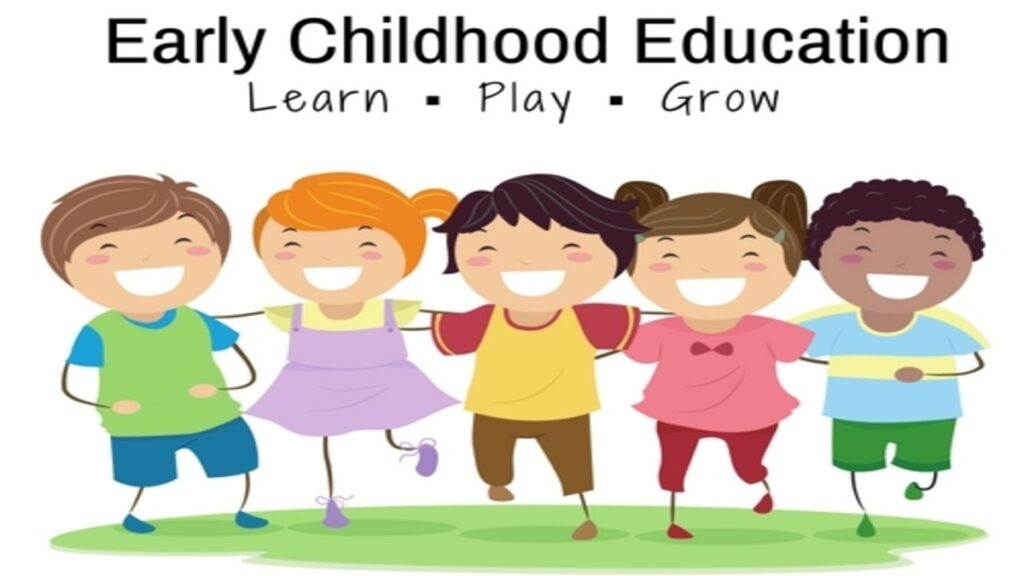Early Childhood Education (ECE) is a term that refers to the period of time from a child’s birth to when they enter kindergarten. The period from birth to eight years old is remarkable for brain development of children and represents a crucial window of opportunity for education.
UNESCO believes that Early Childhood Care and Education (ECCE) is more than preparation for primary school. It aims at the holistic development of a child’s social, emotional, cognitive and physical needs in order to build a solid and broad foundation for lifelong learning and wellbeing. ECCE has the possibility to nurture caring, capable and responsible future citizens.
Significance of Early Childhood Education (ECE)
The process of development of personality and nurturing the potential of children commences from the very beginning of their lives. Experts have found out that physical and mental capabilities of children grow more rapidly up to the age of 8 years, and period between 2 to 5 years is highly critical in this respect. The early years are critical and formative for the acquisition of the concepts, and development of skills and attitudes that lay the foundations for lifelong learning. This period is characterized by rapid physical, intellectual, emotional, social and moral development. Provision of quality early childhood care and education makes a positive difference in their future learning, career, and adult life as good citizens.
Children’s early experiences – the bonds they form with their parents and their first learning experiences – deeply affect their future physical, cognitive, emotional and social development. Optimizing the early years of children’s lives is the best investment in ensuring their future success. Investment in early childhood is a powerful economic strategy, with returns over the life course many times the size of the original expenditure. A child’s dreams can come true with the right education and that it is the joint responsibility of parents and the society to help children realize their dreams.
Investment on Early Childhood Education (ECE) brings following benefits to the individual, education system and the society as a whole.
Benefits to children
- Improvement in cognitive (thinking, reasoning) skills or ‘Learning to Know’.
- Development of their skills to communicate, question, create and solve new problems.
- Reinforcement of their social development (how to nurture and maintain good relations with adults, their other fellows) or ‘Learning to Live Together’.
- Set the foundation for enhancement of learning outcomes in next grades which help them achieve success in their career.
Benefits for Education System and Society
- Improved attendance and retention rates of the children who have received ECCE prior to enrolment in formal Grade I of the primary school.
- Drop-out rate is reduced and thus wastage of resources is minimized.
- Graduates of the education system become productive and contributing members of the society and law abiding citizens; with reduction in the crime rate and positive contribution to the economic growth.
- Cost-saving in health care recipients of ECE are better prepared to adopt healthy life style and practices.
Early Childhood Education in Pakistan
In public sector school of Pakistan, a proper and well planned Early Childhood Education (ECE) has been non-existent. Historically, there are no standardized facilities for the provision of proper early childhood education to them. Neither a separate class room, nor full time services of an exclusive teacher are provided to these children.
Recently, ECE Centers are being established in Punjab, Khyber Pakhtunkhwa, and Sindh. ECE is also part of Education Sector Plans prepared by provincial Education Departments. According to Pakistan Statistics 2015-16, total enrolment of pre-primary education was 8.74 million, and Gross Enrolment Ratio was 74%. Majority of these enrolled children are above 5 years of age. Out of these, 4.21 million or 48.17 % are in private sector and 51.83 % in public sector educational institutions. In private sector there are 448 institutions exclusively offering pre-primary education with a total 2,785 teachers.
References
Shahbaz, S. T. (2018). Report of the Committee on Education Sector Reforms in Pakistan. Islamabad: Federal Ombudsman Pakistan.
OTHER RELATED POSTS
